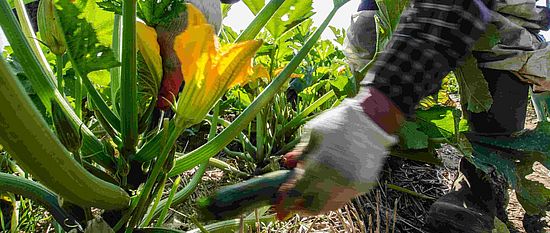
New Plantations: Migrant Mobility, ‘Illegality’ and Racialisation in European Agricultural Labour
What are the mechanisms of differential inclusion and segregation of migrant workers in the agro-industrial labour markets?
This project engages in a comparative enquiry into the triple dynamics of race, space and “illegality” in the reproduction of migrant precarious labour conditions in European agro-industrial labour markets. The complex question how and why “illegality” and “race” may become productive in the segmentation of precarious migrant workers across Europe is currently widely discussed. The project will address this question in a systematic way through five original case studies that are currently almost uncovered by research on migrant labour in Italian, Swiss and Belgian horticulture (specifically the research focuses on Emilia-Romagna, Basilicata; Swiss Midlands and Lake Geneva Region; and Limburg).
This comparative ethnographic analysis of migrant employment regimes is meant to contribute to a better understanding of mechanisms of differential inclusion and segregation of migrant workers in competitive agri-food chains. The projects aims at developing a framework for more socially sustainable production regimes in the studied contexts and at exploring approaches that might improve difficult working conditions of migrants in agriculture.
This project focuses on labour market mediation in the domain of expanding agrobusiness in Europe. Starting from the observation that a large section of agricultural labour today is performed by transnational migrants from both within and outside the European Union, we analyze how these workers are typically caught in a web of multiscalar institutional assemblages that channel, filter and differentiate their permissions, rights and claims in the context of Europe’s rapidly transforming border and migration regimes. At the same time, we analyze how migrant labour becomes actively integrated into intensified retail-driven and flexible commodity networks. New Plantations highlights this new labour paradigm while also pushing for a conceptual innovation to better grasp the multiscalar and multidimensional framing of migrant subject positions in this context.
Publikationen
Bolokan, Dina (2024): Labor Recruitment and Coloniality in the Agricultural Sector. On Plantation Archives, Underclassing, and Postcolonial Masculinities in Switzerland. Critical Sociology, 50(2), pp. 255-274. https://doi.org/10.1177/08969205231185675
Perrotta, Domenico & Raeymaekers, Timothy (2022): Caporalato capitalism. Labour brokerage and agrarian change in a Mediterranean society. The Journal of Peasant Studies, 50(5), pp. 2002–2023. https://doi.org/10.1080/03066150.2022.2072213
Project Team
Karel Arnaut
Timothy Raeymaekers
Sarah Schilliger
Dina Bolokan
Ilaria Ippolito
Domenico Perrotta
Host University
University of Zurich
Funding
SNIS Kooperationsprojekt
Project Period
01/2016 – 05/2018
Quick Links
Social Media
